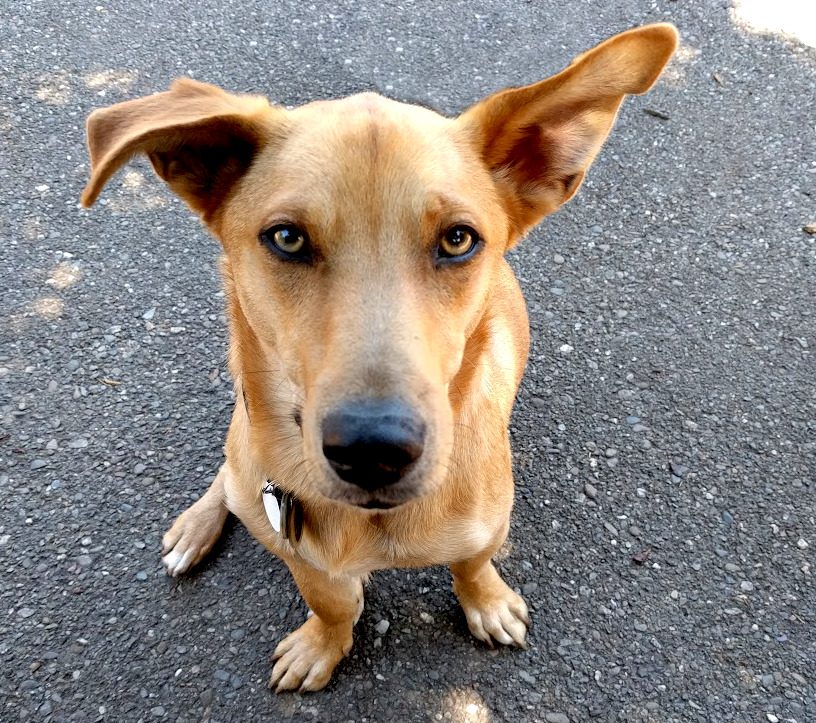The 4-Step Plan to Quit Worrying and Have a “Perfect Dog”

There’s a lot of pressure these days to have the perfect job or the perfect home or the perfect kids. Our culture puts a premium on perfection, so it’s no surprise that many dog guardians strive to raise “the perfect dog.” There’s a plethora of books, websites, workshops, and training programs that promise perfection for you and your dog.
We all want a well-behaved dog, but each of us has a different picture of what “the perfect dog” looks like. Folks living a quiet and sedentary lifestyle would do best with a calm and mellow dog, while dog sport enthusiasts purposely seek out high-drive and high-energy dogs.
Whether you bought a puppy from a breeder or adopted a shelter dog, quirks of personality and the genetic roll of the dice play a role in how your dog turns out. Of course, early socialization, environment, and training are critical. Still, in the end, just like parenting human children, even if you do everything perfectly, things don’t always turn out as expected.
You’re not alone if you feel confused by all the conflicting information about the best way to raise your dog. The last 40 years have seen an explosion of canine research, resulting in a better understanding of how dogs learn. Before the 1980s, the majority of dogs were trained with aversive and punishment-based methods. Unfortunately, old habits die hard, and many dog owners and trainers are still using the same outdated training techniques that our grandparents used on their dogs. However, you don’t need a degree in Animal Behavior to understand the science. The following articles (with research links) will help you become a well-informed dog owner.
- Make Your Dog Happy. Train Force-Free: The science behind the benefits of reward-based, force-free training methods.
- Alpha Dog Myths: Your dog is not trying to dominate you.
- Fallout From the Use of Aversives: An excellent resource citing articles from peer-reviewed journals explaining why punishment and corrections are not recommended.
- In Dog Training, Balance is Off: Explanation of why you should avoid “balanced” dog trainers.
Maybe your parents wanted you to become a doctor or a lawyer, but your interests lay elsewhere. But, as with human children, there is a limit to how much you can shape and mold your dog to match your expectations.
Dogs are not accessories. Each dog comes with their own individual personality and preferences. Some are naturally gregarious and confident; some are reserved and cautious. Your dog might love socializing with other dogs and meeting new people, but they’re not broken if they hate the dog park and don’t want to be petted by strangers. Maybe you’re a runner, and your dog is a couch potato. Or you hoped for a dog who would lie peacefully at your feet at cafes, but your pup hates sitting still. Set your dog up for success by not insisting they do stuff they hate. It is also totally normal for your dog’s likes and dislikes to change with age.
If you are struggling with your dog’s behavior, get help from a force-free trainer or behavior consultant. Everyone at the dog park has an opinion about dog training, and the internet is filled with contradictory and outdated information. Instead, work with a qualified professional to create a training plan for the best results.
Many new dog owners are surprised to find out how much exercise and attention their dog needs. Every dog has different exercise needs, but if your dog is bouncing off the walls at home and you don’t have time for multiple daily outings, consider hiring a professional dog walker. A walk around the block twice a day just doesn’t cut it for most dogs.
Recognize the beauty of imperfection and expect the unexpected. Being a dog owner means making room for a little chaos. Letting go of your preconceived notions of the “perfect dog” leaves room for a lifetime of love, play, and acceptance.
Your dog doesn’t need you to be perfect, either. They need you to be patient and consistent. They need your companionship. It’s your job to set boundaries, prevent unwanted behavior, and reward the behavior you want.
Your dog doesn’t love you less if you’re sad or sick or old or depressed. Dogs love us unconditionally. Can we do the same?
Dedicated to and inspired by Mei Mei and Luna.

